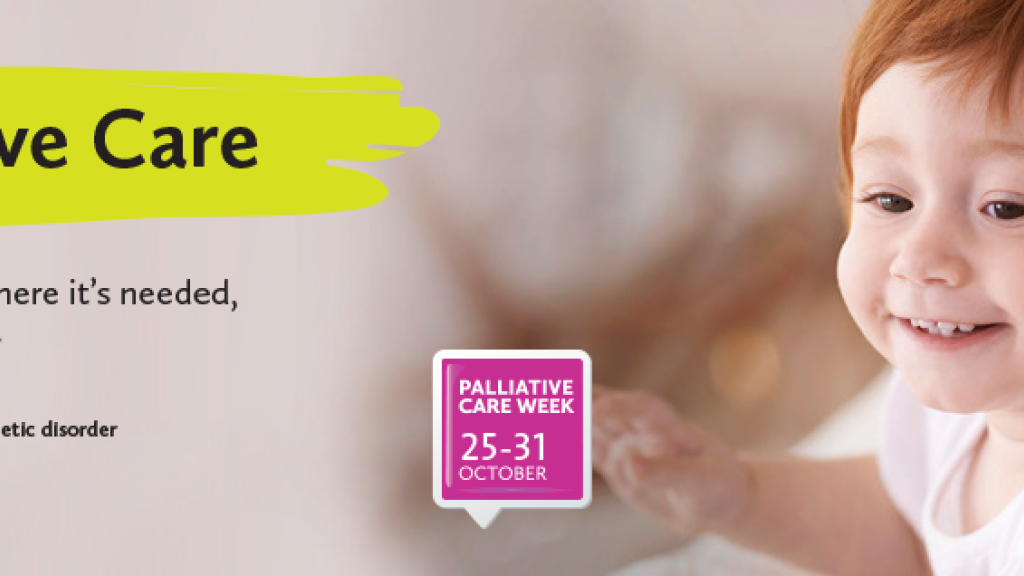
Pilot study assesses new model of palliative support in the community
A new pilot study in County Limerick is looking at how communities can provide social and practical support to people with palliative care needs in their neighbourhood. In support of Palliative Care Week (October 25th-31st), the Irish Cancer Society is highlighting an innovative research initiative that will evaluate the potential of a new community model of palliative support. The study led by Dr Kathleen McLoughlin, a psychologist attached to Maynooth University and Milford Care Centre in Limerick, is reaching out to people with advanced life-limiting illness, who are living at home, with unmet social and practical needs. Funded by the Irish Cancer Society through the All Ireland Institute of Hospice and Palliative Care, the study will see a new, volunteer-led community model of palliative support – the Good Neighbour Partnership - being rolled out in Limerick city and county over the next year. The initiative will look at how the community can provide social and practical support to those in need of palliative care, in particular people who may be in their last year of life and may live in isolation or have a limited social network. Under the initiative volunteers will work with patients and families to assess their practical and social needs, whether it is shopping, cutting the lawn, or walking the dog, and will then mobilise the individual’s social network to get those things done. Explaining the potential impact of the study, Dr McLoughlin said, “This model is about providing support to those who may have a weak social network or who may feel that they don't want to be a burden to people, by asking for additional help. We know from research already completed that people in the community do want to help, but often aren't sure what to say, or what to do and don't like to look as though they are intruding. This initiative bridges those who want to help with people who need it”. The new model, which is also supported by the Irish Hospice Foundation and Milford Care Centre, is now being rolled out as a pilot study over the next year to assess its effectiveness and potential value to participants. “We have tested this model of support in the community by pairing three volunteers with three people with very different social and practical needs and the results have been very positive. One volunteer reported how the patient’s mood had changed now that she was being supported and had ‘a spring in her step’ that just wasn't there before,” Dr McLoughlin explained. “We would like to make it available to 80 participants across County Limerick over the next year. We want to test the feasibility of this community model and how it works in reality and if it is acceptable to all parties, including the person living with a life-limiting illness and their families and the volunteers who support it. We will also look at the impact on the quality of life of participants, their wellbeing, and other social issues such as loneliness and connectedness with society,” Dr McLoughlin added. This study is just one example of how the Irish Cancer Society is changing lives through research. From the laboratory to the community, the Society is leading the way through a programme of strategic and collaborative research investments to improve the lives of cancer patients. In addition to this research commitment, the Society also provides a ranges of services and supports for people affected by cancer and their families. One such support is the Irish Cancer Society’s Night Nursing Service, which last year provided free palliative care to more than 1,900 cancer patients at the end of their cancer journey. Night nurses give nursing care, practical support and reassurance to the patient during the night, while also providing comfort and support to the patient’s family. For more information about the Night Nursing Service provided by the Irish Cancer Society visit www.cancer.ie/how-we-can-help/nursing/home-night-nursing. Anyone who is concerned about cancer can also contact the Irish Cancer Society’s Cancer Nurseline on Freephone 1800 200 700 to speak to a cancer nurse. Palliative Care Week is organised by the All Ireland Institute of Hospice and Palliative Care and aims to raise greater awareness of palliative care and how it can help to achieve the best possible quality of life for people with a serious illness. For further details about Palliative Care Week visit www.palliativecareweek.com.
